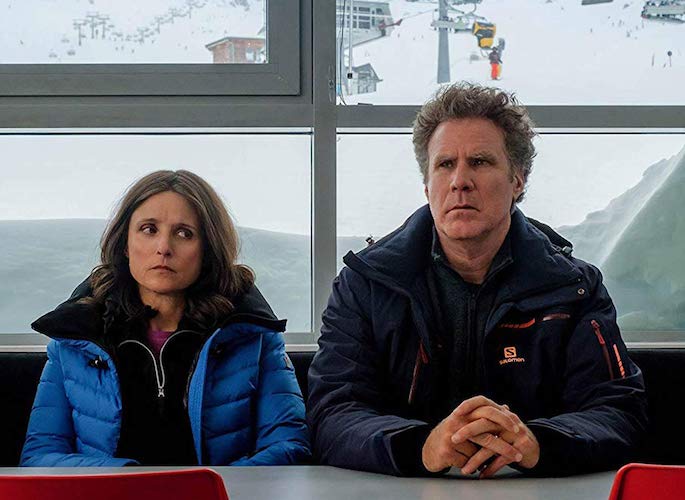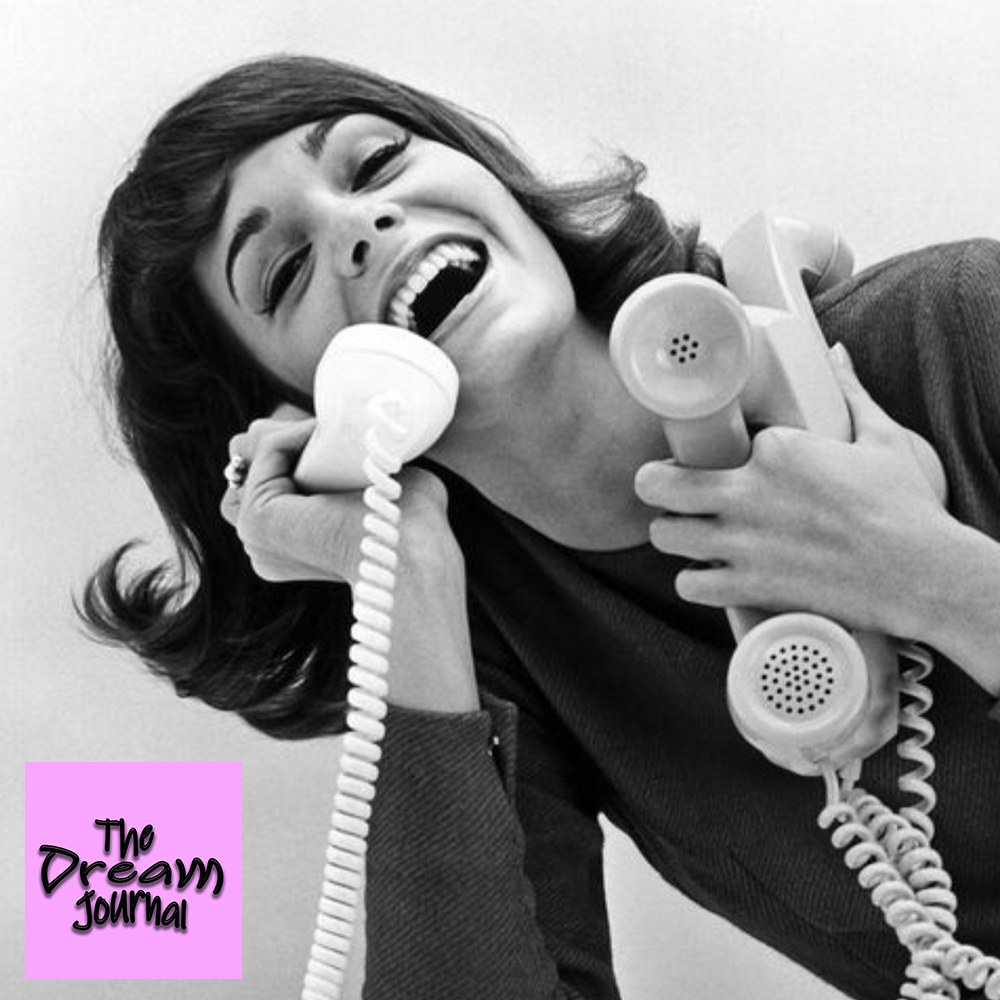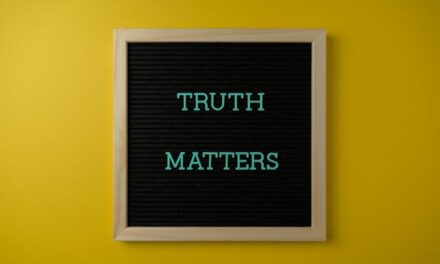
Inherent discrepancies exist between who we truly are, how others perceive us, and how we consciously and unconsciously choose to view ourselves. In our average day-to-day lives, such differences rarely matter. But what if a potentially life threatening situation triggers an ignominious act of instinctive self-preservation that can’t be glossed over or ignored? That scenario is at the heart of the dramatic comedy, Downhill, an Americanized version of the excellent 2014 Swedish film, Force Majeure.
Julia Louis-Dreyfus and Will Ferrell star as Billie and Pete, a married couple enjoying the slopes of the Austrian Alps with their two adolescent sons. While having a meal at the ski lodge a so-called “controlled avalanche” creates a breathtaking photo-op. But as it continues to grow larger, threatening to engulf them all, Pete literally runs away, leaving Billie and the boys in a cloud of powder snow. Moments later after the air clears, Pete returns to find his wife and kids shaken, but fine. So he sits down and orders some soup, completely sidestepping the fact that he had just abandoned his family in the face of danger. Billie, stunned at seeing a side of Pete she wished she hadn’t, suppresses her shock and anger. When she finally broaches the topic, Pete emphatically denies running away, writing off her perspective as simply a difference of opinion, leaving her, and us, wondering if he’s in total denial or deliberately trying to gaslight her. Thus marks the start of Downhill’s story proper. With their marriage hanging in the balance, they both struggle to come to terms with Pete’s ignoble response to an extraordinary event.
Most of us probably think we would have acted differently than Pete. “Of course I would risk death to save my loved ones!” But we don’t really know how we would react in a situation like that, and odds are we never will. Therein lies the beauty of Downhill’s brilliant premise. We can’t help but put ourselves on a heroic pedestal while delivering a self-serving judgment against Pete, thereby doing exactly what he’s doing – creating a balm for our ego with a fabricated narrative so we can feel better about ourselves.
Unfortunately, a brilliant premise does not a good movie make. Among critics, Downhill hasn’t fared too well, and judging by the social media response, fans of the Swedish film are largely indignant, lambasting it as an unnecessary remake that besmirches the original. Force Majeure was subtle and more mature, raising complicated questions with no easy answers and immersing the audience in a what-if situation that begs self-reflection. Downhill is more blunt, less realistic, and indulges in European stereotypes for cheap laughs, including an über-romantic Italian ski instructor and an embarrassingly tacky, sexually outspoken German socialite. Julia Louis-Dreyfus’s impressive acting skills almost redeem the endeavor, showing surprising emotional depth in several scenes. Will Ferrell acts like Will Ferrell, only less so; he’s not particularly funny, and his glum one-note portrayal goes well past the point of tedium. Those expecting a typical Will Ferrell comedy might want to recalibrate their expectations accordingly. And while Downhill isn’t quite as bad as the majority of film critics are making it out to be, that’s damning with faint praise for a remake that pales in comparison to the original.
For KSQD’s Film Gang, this is Paul Kanieski












